When and How Avatar: The Last Airbender Did What Other Modern Fantasy Stories Couldn’t
"In the darkest times, hope is something you give yoyurself. That is the meaning of inner strength."
In my last article, I said a lot of things, but the main point I was trying to make was that we should focus on the positive at least as much as the negative in life. This applies to fandom as much as anything else, and, at least to me, internet fandom has felt pretty sour the past few years. While the Star Wars films Disney has released have dropped the ball, and personally I would say a few big franchises have of late, there’s still good stuff out there. It feels like that good is being downplayed or ignored to an extent, and I thought it might be an interesting topic to look at. Going on the quality of these franchises, as well as audience reception to them, we need to stop looking at them as “the legacy of ___.” I refuse to see these films/series as “this generation’s Star Wars,” or even the next chapter of those respective stories. In terms of money and popularity, some obvious successors to Star Wars would be the original Harry Potter books/movies, Lord of the Rings, and the MCU. I like these very much and have no problem with them, but in my opinion, another property gets closer to the heart of Star Wars and yet doesn’t get as much traction. In short, The Force Awakens wasn’t this generation’s Star Wars. In the past couple of decades, the closest we came to Star Wars was Avatar: The Last Airbender, and I’m going to look at why that is.
We can all debate until the end of time what exactly it is that makes a story work. Some would say worldbuilding, clever use of allegory, or even the drama of the story. For me, two big things make all the difference: character and theme. I would put character first because, if I really love a character, I’ll almost always watch their story play out to the end. Conversely, no amount of intriguing story or insightful themes can get me invested in a character I don’t like. Here, I’d like to draw a comparison that may seem a little obvious, but that’s because it so perfectly demonstrates what Avatar gets right that other modern fantasy films and series don’t. The Disney Star Wars trilogy and ATLA share a striking resemblance in their villains-turned-antiheroes, Ben Solo and Prince Zuko. Both hail from families of great renown, struggle with doing what’s right, and share a (superficially, in Ben’s case) complex relationship with the protagonist. The greatest argument I can make here is that you could (and many have) argue that Zuko is the true hero of Avatar every bit as much as Aang is. Can you say that about Kylo Ren? I don’t see how anyone could, given his paper-thin characterization and heel-face-turn at literally the last possible moment. He was introduced as a menacing villain, and Adam Driver delivers a rare moment of human empathy, but the arc is too muddled and the character too whiny for this to work. The trilogy’s ultimate justification for his actions is that he was being controlled by Palpatine, which is weak for two reasons: we never saw this happen, and, um, we already did this. We already watched 6 movies of Anakin being played by Palpatine, so why go this route again?

The Rise of Skywalker explains his love/hate bond with Rey (again at the last minute, making it less believable) by saying they’re a Force Dyad. This concept has never before been mentioned in the films (or the animated shows) and is not sufficiently explained. I have to be honest here; even if they explained it better or this was already an established facet of the lore, it’s a lazy way to bring characters together. It’s very weak and turns the characters we’re supposed to be rooting for into reactive passengers along for the ride, rather than active players driving the story. I’m all for magical elements and subplots in a good fantasy story, and I consider Star Wars science fantasy, not science fiction, but that’s a topic for another day. However, the mystical should inspire the characters to do better or create mysteries within the story itself, not actually decide who the characters are and how they relate to one another. If Rey is powerful because she is arbitrarily part of this seemingly omnipotent Force Dyad, it doesn’t feel like she truly achieved anything. The Force handed all her power to her. And, sadly, this is very much how it plays out anyway.
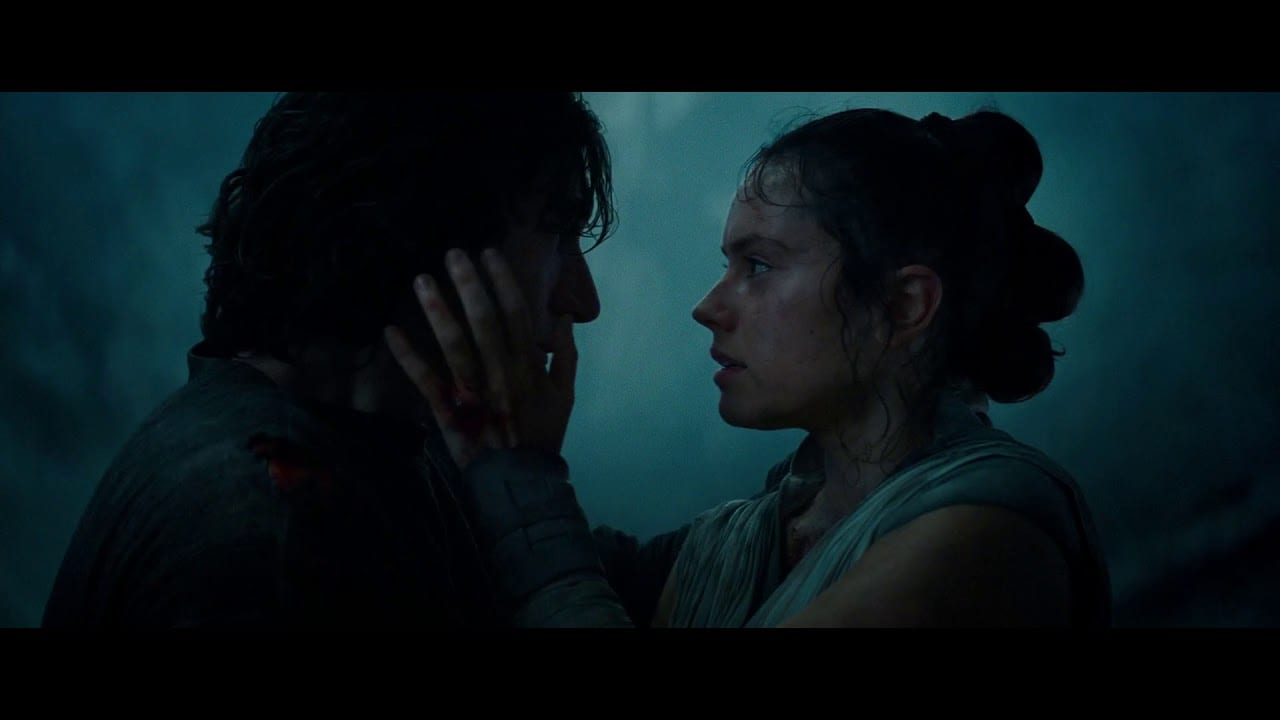
However, when it comes to Aang and Zuko, things are very different. For one, they don’t awkwardly kiss moments before one of them drops dead because of reasons. In all seriousness, Zuko and Aang are free agents within their story, and each must choose his own path. Zuko doesn’t discover Aang’s existence because of coincidences and stupidity like Ben and Rey, but rather actively seeks to find and capture the Avatar because of what he represents. Incapacitating the greatest threat to his father’s pursuit of ultimate power will, Zuko believes, restore his honor and his father’s love for him. It’s also worthy of note that, while Zuko comes from a (mostly) evil family, his evil actions throughout the series are committed out of love for his family. It doesn’t make it okay by any means, but it informs his mistakes, and later his tremendous character growth. Ben comes from a (mostly) good family and does terrible things out of resentment and rejection of them. Why does he resent his parents? Why does Ben idolize Anakin, not for his redemption and capacity for kindness, but because of his misdeeds? A big problem here is that it’s never explained why he hates Han and considers him a bad parent. To be fair, his anger towards Luke is explained, albeit very badly and out of character, in The Last Jedi. But three movies later, I have no clue why Ben hates his parents and killed his father. While Ben and Zuko serve a similar narrative purpose and Ben seems like all but a copy of Zuko, the results differ wildly.
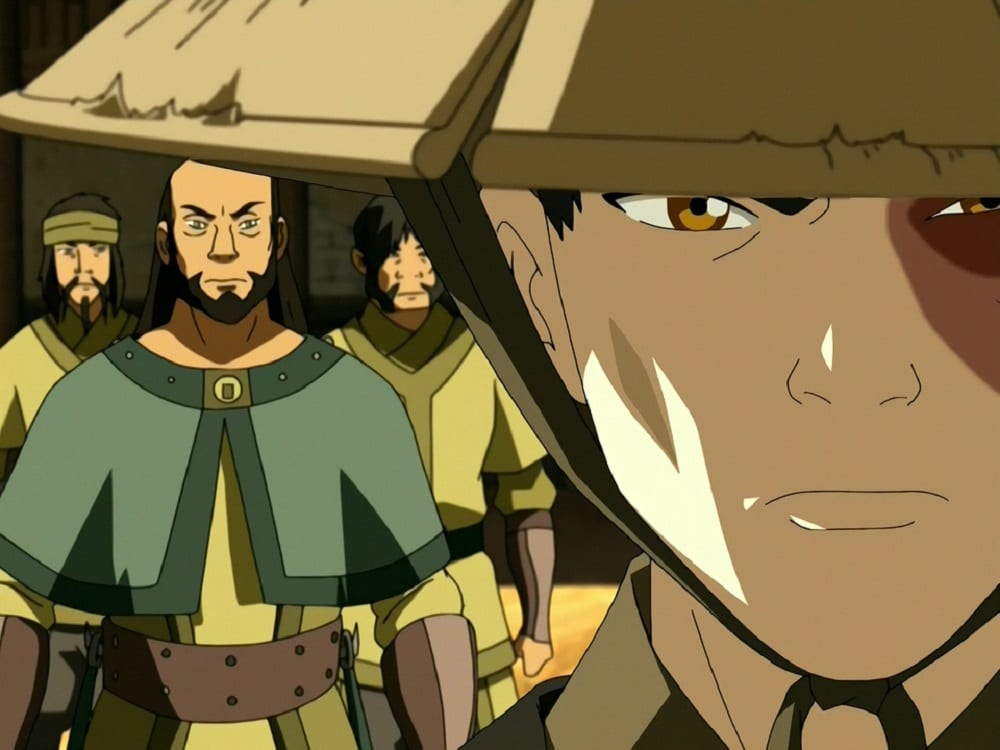
I think the essential reasons for these opposing levels of quality is simply the amount of care that was put into the writing. Zuko comes from a family and a nation that has indoctrinated him to believe that they’re the greatest people on Earth. As seen in Book 3: Fire, the common people of the Fire Nation, including their school children, have been fed this kind of thinking in schools and by osmosis for generations. Zuko approaches his task of capturing the Avatar believing that what is best for his nation and his father is also best for the rest of the world. The Fire Nation has the best technology, culture, beliefs, etc., and, as such, has a responsibility to “share” this “wealth” with what they see as backwards peoples toiling in the constraints of the past. This is such an intelligent and empathetic way to approach not only a villainous character but the “evil” country itself. Of course, Firelord Ozai (Mark Hamill, whose versatility as a vocal performer is astounding) really is a psychopath, lacking in empathy for the other nations and even his own son. However, most of the people under his rule are just that – ordinary people. Zuko’s worldview comes from what he’s been taught, and throughout the show, he unlearns it through experience. Through interacting with other peoples, fighting styles, and ways of life, he slowly starts to understand how flawed these teachings are. Not only is the Fire Nation too brutal in its tactics, but the other peoples of the world are perfectly content with their own cultures and capabilities. He also gains a new understanding first of the Avatar as a concept, and Aang as a person, as the show goes on. He initially underestimates Aang and swears not to do so again. In one of my favorite scenes of the entire show, Zuko’s Uncle Iroh (voiced by Mako) explains the strengths of each nation and the wisdom that can be drawn from the elements and fighting styles (Book 2: Earth, episode 9, “Bitter Work”). He tells him that wisdom comes from many different sources and that the combination of all four elements/fighting styles is what makes the Avatar such a force of nature.
Later, in my personal favorite episode, Book 3: Fire, episode 6, “The Avatar and the Firelord,” Zuko learns that he is descended from Avatar Roku, Aang’s past life and the last Fire Nation Avatar. The overall message this episode communicates is that a good person or a bad person can come from anywhere, as Avatar Roku (James Garrett) and Firelord Sozin (Ron Perlman) were both Fire Nation citizens, and the very best of friends at that. However, when Sozin came of age and ascended to the throne, he presented his oldest and dearest companion with his plan for a new world. In this world, the Fire Nation, led by the Avatar and its prospective Emperor, would share its prosperity with the rest of the world through colonization and force. Roku rejects these notions and shames Sozin for bringing this to him, but he doesn’t fight his friend, merely leaving after their disagreement. Years later, he learns that Sozin has indeed invaded the Earth Kingdom and established colonies there. Even then, Roku threatens him but spares his life in the name of their former friendship. Roku’s restraint and concern for his old friend ultimately lead to the 100 Years War, Sozin’s genocide of the Air Nomads, and the benders of the Southern Water Tribe (except for Katara, of course). This is another theme the show explores, in addition to the complex nature of war and “bad” people/nations: the consequences of our choices and actions, even those that seem correct or merciful at the time. And while Sozin starts out wanting to help the people of the world with what his nation can offer, he’s willing to eliminate entire races and ways of life to do it. And his descendants, especially Ozai, are only interested in amassing power and followers, not spreading wealth and prosperity to less fortunate nations. The show also takes great pains to show that evil can and does come from anywhere. The Firelord is the ultimate threat to peace amongst the countries, but Long Feng (Clancy Brown), the Grand Secretariat of Ba Sing Se in the Earth Kingdom, is a major antagonist in Book 2: Earth. There are also water-bending villains, and in Legend of Korra, eventually an evil airbender. The choices made by past Avatars and world leaders have enormous consequences on the modern world. The show also does an excellent job displaying how the actions of the main characters affect their own lives and the world. One example is when Zuko finally tries to join Aang and his friends (Book 3: Fire, Episode 12, “The Western Air Temple”).
Aang and Rey aren’t as similar as their morally challenged counterparts. Still, the success of their function as the protagonist is just as disparate. Rey feels, as I said earlier, like a passenger in the story, not an active participant. The first movie is most interested in the mystery of her lineage and showing how super cool and good at everything she is. In The Last Jedi, she learns quickly, even without Luke’s willing training. In the end, she’s able to lift a mountain of rocks, dwarfing the iconic scene in which Yoda raises Luke’s ship out of the swamp. There are innumerable problems with the sequels, both in terms of quality and their place in the canon. Personally, though, I think the characters and themes are the greatest failures of these films. Rey and especially Finn had interesting introductions. If The Last Jedi and Rise of Skywalker had played out differently, they could have joined generations of iconic, fan-favorite Star Wars characters. On the other hand, Aang’s story is one of adversity, hard work, and heroism. Aang never wanted to be the Avatar, and at first, he lies about his identity. The impending war forced the monks to tell Aang about his duty and powers too early. When they were going to remove him from his mentor and friend, he panicked and ran away. When Katara awakens him 100 years later (Book one: Water, Episode 1 “The Boy in the Iceberg”), he’s filled with sadness and guilt, blaming himself for the demise of his people and culture.
Aang grapples with ideas of tradition vs. practicality when he finds that a new group of displaced people have made their home in the Northern Air Temple. They’ve made modifications to the temple to suit modern life, such as air ducts and pipes. At first, this causes Aang a great deal of grief and anger. Not only are his people gone, but their homes have also been repurposed and, from his perspective, disrespected. Aang also matures quite a bit through the series while never losing his playful, fun-loving spirit. He starts out as an unskilled, reluctant hero who is more interested in penguin sledding than stopping a tyrannical warlord from destroying half the world. But, much like Zuko, Aang learns through experience to respect the elements and recognize the path ahead of him. The overarching theme of the show, if you were to pick just one, concerns destiny and personal choice. It is the destiny of the Avatar to protect the world and restore balance at any cost. Zuko at first thinks his destiny is whatever will please his father and welcome him back into his family. Past Avatars have either faced their destiny head-on or ignored it, resulting in a tumultuous, war-torn history with peaceful interludes not unlike our own. The Avatar isn’t the only being faced with difficult choices to make, as we see time and again through series regulars, flashbacks, and even single-episode characters. Sozin proposed that the Avatar and Firelord being good friends was an amazing opportunity for change. Ironically, it was Aang and Zuko’s friendship that ultimately changed the world for the better by ending Sozin’s war.
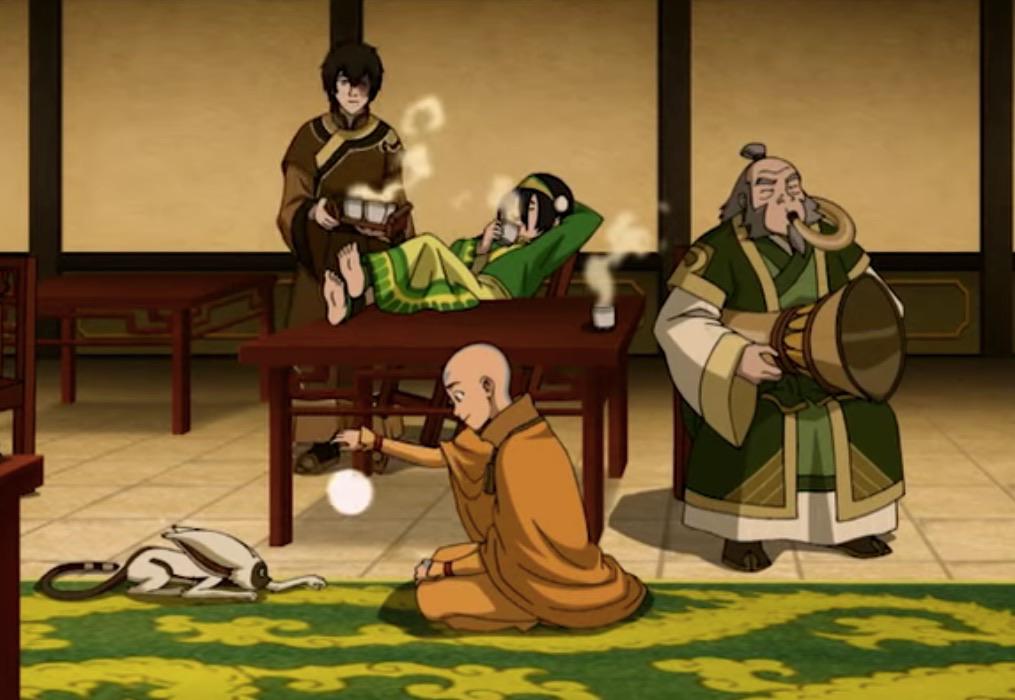
I could go on for ages about why Avatar: The Last Airbender is one of the greatest TV shows of all time. It is this generation’s Lord of the Rings and the first animated epic fantasy with which I am familiar. Through its exploration of themes such as destiny, personal choice, and a great, powerful spiritual connection between all people and the world they live in, Avatar succeeded where other recent fantasy stories have failed. This and the varied, believable, and carefully written characters make Avatar the real successor to Star Wars.
Comments (7)

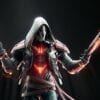
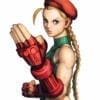
The best animated series of the 21st century so far. I seriously can’t think of a better one.
Thank you for reading, and I completely agree. It’s an incredible show.








Great article